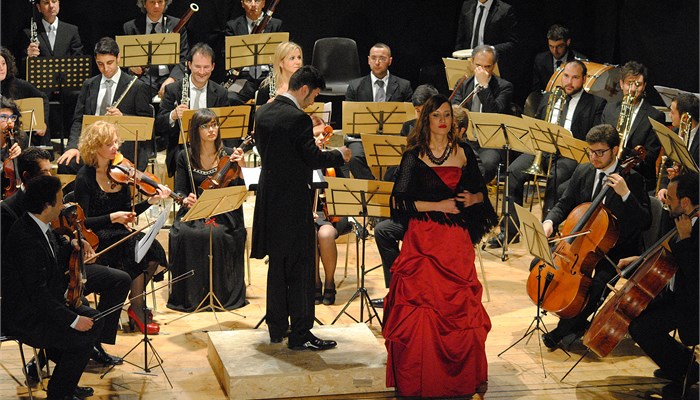ARE AVE MARIA OF SCHUBERT AND GOUNOD FORBIDDEN IN ITALY?

For some years there is a question of the ban imposed by some pastors on the execution of Ave Maria by Schubert and Gounod during the wedding ceremony. Now the question is this: is there or not officially exist this prohibition? One can cite, for example, a dispute between Al Bano and the pastor of Cisternino (Brindisi) for the prohibition of singing the Ave Maria Bach-Gounod during marriage by Michele Placido. They have talked about the newspapers and national and local television. The reasons given for the exclusion of certain songs and music, is historical, of opportunity and no relevance to the rite; in conclusion: they are religious songs but not liturgical and music was composed for profane purposes.
We analyze the tracks:Franz Schubert composed his Opus 52, a group of seven songs (Lieder) taken from the epic poem (The Lady of the Lake) of the Scottish writer Walter Scott, translated into German by A. Storck who adapted . There is no story of lovers or other rough situations that are sometimes cited as a reason for the rejection of this passage; instead the invocation of a girl for the salvation of his father. Over the years this has been replaced in the text.
The other Ave Maria was composed by Gounod (1859) , who wrote a melody for violin, piano accompaniment using as The Prelude from the Well-Tempered Clavier by J.S. Bach. Subsequently he made a vocal processing and orchestra, with text in Latin of 'Ave Maria.
The Catholic Church has not expressly imposed a veto but has only shown that if these songs with the use and the time they got some sacred characterization, it is right and necessary to encourage melodies and songs not just listening, but of true community participation according to the norms and the liturgical spirit. In our view, it is important to first start by saying that, when you choose to celebrate a wedding with religious ceremony, the singing and the music should still be chosen in respect of the rite and the environment that you chose.
In conclusion, you can play and sing the Ave Maria and other songs now entered the classical repertoire and sound become a sign and symbol of Christian marriage? The answer is yes. The important thing is to avoid extreme solutions: it makes no sense for parish adopt too rigid measures but neither the bride and groom have to think that we can dispose of at will the church. It does not. Rightly, there is concern on the part of priests to celebrate a Christian ritual, despite the solemnity and joy of the moment.
The board is to match the songs in a relevant way to the various liturgical moments of the wedding ceremony. For example, singing the Ave Maria offertory or communion, it does not answer a very pertinent choice and perform it during the signatures, or the blessing of the rings, as a tribute to Madonna, why should not be allowed ?
This is the text of 'Ave Maria translated and set to music by Schubert The translated text and music by Schubert consists of three stanzas: 1) 'Ave Maria! sweet Virgin, hear prayer of a virgin, by this wild and rugged cliff comes up to you my invocation. Until safe sleep the morning, as they can be cruel men. O Virgin, considers the worries of a virgin. O Mother, hear a daughter who calls you! Ave Maria. " 2) 'Ave Maria! Immaculate! When we lean on this rock to sleep, and your protection surrounds us, the hard rock becomes soft for us. You smile and a pink nose above the damp stench of this crevasse. O Mother, hear a daughter begging. O Virgin, a virgin is calling you! Ave Maria. " 3) 'Ave Maria! pure virgin! The demons of the earth and air, repelled by the grace of Thy gaze, can not be among us. We accept our fate in silence, because assisted by your holy comfort. Benevolent bent of this virgin, to the daughter for the father prays. Ave Maria. "
Listen here for Schubert's Ave Maria in an instrumental version, and here in vocal version
Listen here Ave Maria by Gounod in an instrumental version, and here in vocal version
